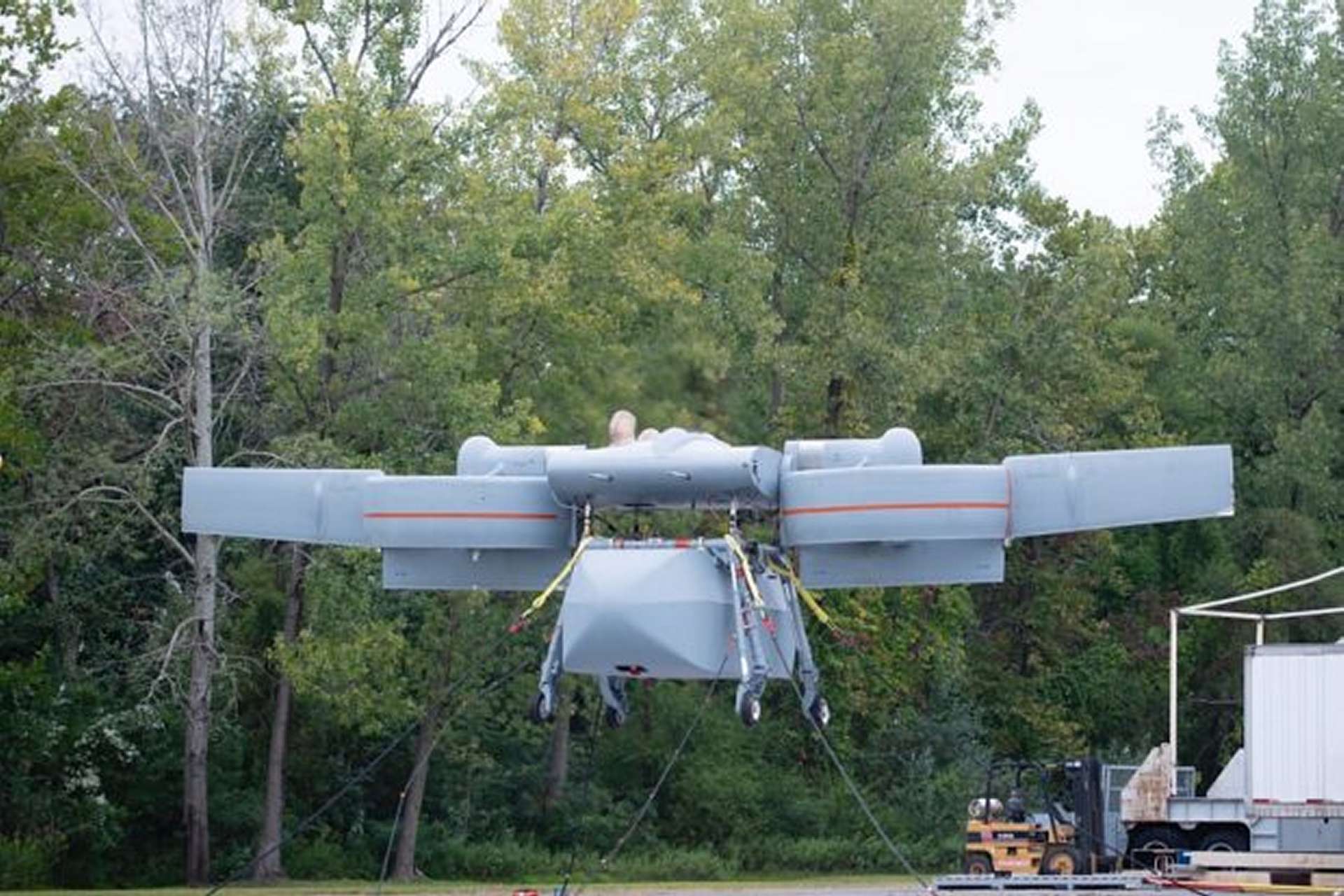Piasecki Achieves First Flight of Tilt-Duct Aerial Reconfigurable Embedded System Demonstration Vehicle

{loadposition bannertop}
{loadposition sidebarpub}
On September 6, 2024, Piasecki Aircraft Corporation (PiAC) marked a turning point in vertical take-off and landing (VTOL) technology with the successful first flight of its tilt-duct Aerial Reconfigurable Embedded System Demonstration Vehicle (ARES-DV). Conducted in Essington, Pennsylvania, this test represents a major advance for autonomous missions such as casualty evacuation and cargo resupply.Follow Army Recognition on Google News at this link
Piasecki Tilt-Duct Aerial Reconfigurable Embedded System Demonstration Vehicle (Picture source: Piasecki Aircraft Corporation)
The initial flight, performed at Piasecki’s West Helipad, tested the ARES-DV’s capability to maintain a stable hover, a performance further demonstrated during a second flight with the addition of the U.S. Army’s Mobile Multi-Mission Module (M4). This historic moment highlights Piasecki’s ongoing innovations in the VTOL sector, supported by a $37 million strategic funding initiative involving the U.S. Air Force and Army.
The ARES vehicle, which can operate unmanned or with a crewed flight module, is notable for its small landing footprint—an essential feature for expeditionary and shipboard operations. Its modular design allows for rapid adaptation to various mission needs, from reconnaissance to logistics, significantly reducing costs and logistical footprint.
John Piasecki, CEO of Piasecki Aircraft, shared his enthusiasm for the project’s progress: “After years of research and development, ARES represents a milestone in our long history of innovation. This success paves the way for the next phases, which will see ARES evolve towards fully autonomous flight demonstrations for CASEVAC and logistics missions.”
The integration of Honeywell Aerospace’s Compact Fly-By-Wire system in the ARES-DV highlights the technology’s ability to enhance the safety and performance of smaller aircraft. Dave Shilliday, Vice President at Honeywell, emphasized the productive collaboration with Piasecki, which allowed the advanced technology to be adapted to the compact format of the ARES-DV.
The ARES project, supported by contracts from the U.S. Air Force and Army, continues to benefit from the military’s commitment to innovation, underscoring the growing importance of VTOL technology in modern military operations, especially for dispersed combat units and missions requiring high mobility and flexibility.

{loadposition bannertop}
{loadposition sidebarpub}
On September 6, 2024, Piasecki Aircraft Corporation (PiAC) marked a turning point in vertical take-off and landing (VTOL) technology with the successful first flight of its tilt-duct Aerial Reconfigurable Embedded System Demonstration Vehicle (ARES-DV). Conducted in Essington, Pennsylvania, this test represents a major advance for autonomous missions such as casualty evacuation and cargo resupply.
Piasecki Tilt-Duct Aerial Reconfigurable Embedded System Demonstration Vehicle (Picture source: Piasecki Aircraft Corporation)
The initial flight, performed at Piasecki’s West Helipad, tested the ARES-DV’s capability to maintain a stable hover, a performance further demonstrated during a second flight with the addition of the U.S. Army’s Mobile Multi-Mission Module (M4). This historic moment highlights Piasecki’s ongoing innovations in the VTOL sector, supported by a $37 million strategic funding initiative involving the U.S. Air Force and Army.
The ARES vehicle, which can operate unmanned or with a crewed flight module, is notable for its small landing footprint—an essential feature for expeditionary and shipboard operations. Its modular design allows for rapid adaptation to various mission needs, from reconnaissance to logistics, significantly reducing costs and logistical footprint.
John Piasecki, CEO of Piasecki Aircraft, shared his enthusiasm for the project’s progress: “After years of research and development, ARES represents a milestone in our long history of innovation. This success paves the way for the next phases, which will see ARES evolve towards fully autonomous flight demonstrations for CASEVAC and logistics missions.”
The integration of Honeywell Aerospace’s Compact Fly-By-Wire system in the ARES-DV highlights the technology’s ability to enhance the safety and performance of smaller aircraft. Dave Shilliday, Vice President at Honeywell, emphasized the productive collaboration with Piasecki, which allowed the advanced technology to be adapted to the compact format of the ARES-DV.
The ARES project, supported by contracts from the U.S. Air Force and Army, continues to benefit from the military’s commitment to innovation, underscoring the growing importance of VTOL technology in modern military operations, especially for dispersed combat units and missions requiring high mobility and flexibility.





